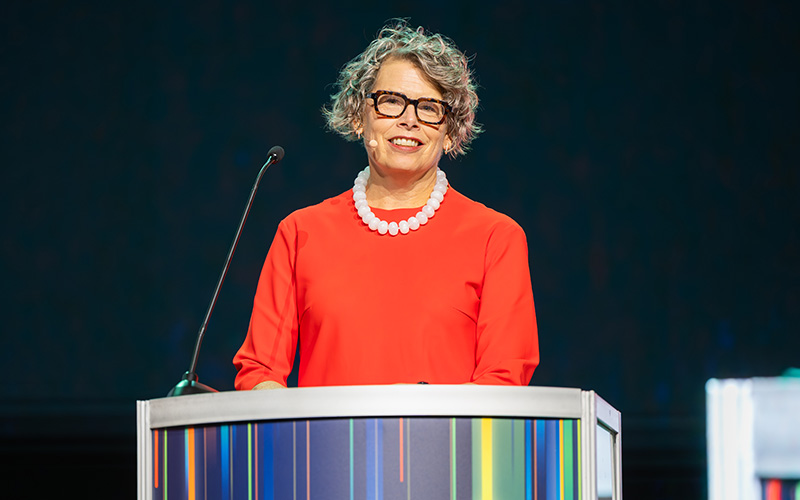What Credit Unions Can Learn from Alternative Lenders: Lisa Servon from the MAXX 2025 Mainstage
Posted by Alyse Knudsen on October 29, 2025

If payday lenders and check-cashers are so costly, why do millions still rely on them? According to Lisa Servon, a professor at the University of Pennsylvania who has worked inside these businesses as part of her research, it’s because their customers are often making smart, rational choices in a financial system that doesn’t meet their needs. Speaking from the MAXX 2025 mainstage, Servon challenged credit unions to consider the reasons why the 25 million unbanked and underbanked households in the U.S. often feel that traditional institutions don’t serve them well.
“Many people feel Main Street financial services are no longer serving them in the way they want to be served,” Servon said. “They still value trust, personal connection, and transparency — qualities they often find more readily at a check-casher than a bank.” She cautioned against labeling people “unbanked” or “underbanked,” noting it implies a deficiency rather than recognizing that many are making informed, realistic financial decisions.
 Servon’s research highlights that the underserved market tends to include lower-income and less-educated individuals, communities of color, single-parent households, and those with unstable income. Yet it’s a growing group, encompassing many who hold jobs, own homes, and even hold college degrees. “People who live close to the edge financially are making the most rational choices they can,” she said. “For some, paying a small fee to cash a check is cheaper than risking an overdraft or late fee.”
Servon’s research highlights that the underserved market tends to include lower-income and less-educated individuals, communities of color, single-parent households, and those with unstable income. Yet it’s a growing group, encompassing many who hold jobs, own homes, and even hold college degrees. “People who live close to the edge financially are making the most rational choices they can,” she said. “For some, paying a small fee to cash a check is cheaper than risking an overdraft or late fee.”
She spent time working in check-cashing stores to understand the people who use this alternative financial option and their motives, and it revealed why these businesses inspire loyalty: transparent pricing, faster access to funds, and personal service. “Customers see the full menu of fees up front,” shared Servon. “They aren’t surprised by hidden charges or unclear policies.” She added that many consumers feel tricked by complex, 40-page disclosures, while check-cashers display pricing clearly on the wall. That transparency and human connection help build trust — and keep customers coming back.
Servon emphasized that if credit unions want to reach this market, they should continue to focus on “financial health and justice“ rather than “banking access.” She encouraged credit unions to play to their strengths — trust, transparency, and community ties — while also considering innovative partnerships and simpler, clearer communication. “You already have more trust than your competitors,” she reminded the audience. “The opportunity lies in living up to that trust by understanding why people make the financial choices they do — and meeting them where they are.”
Posted in MAXX, MAXX Keynote Speakers, Top Headlines.
















